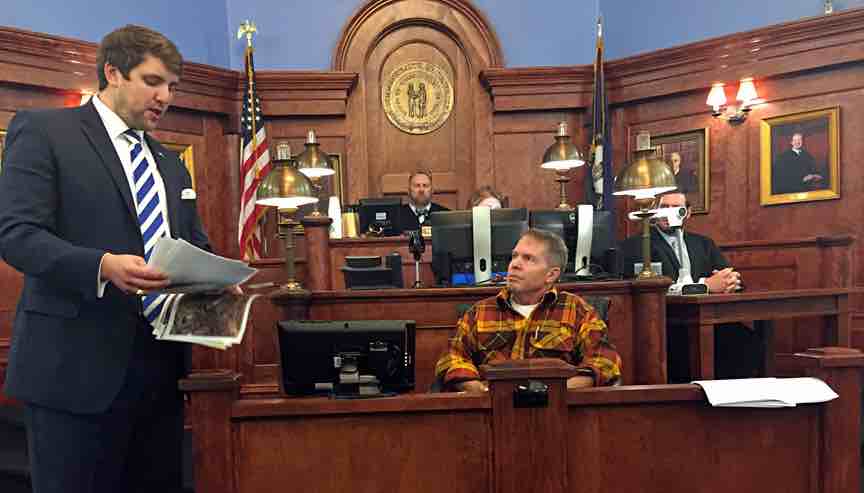Franklin Circuit Judge Thomas Wingate denied alleged “Pappygate” ringleader Gilbert “Toby” Curtsinger’s motion to suppress evidence in April of this year, which the five barrels of Wild Turkey bourbon sheriff detectives found on his property almost two years ago.
One of the most notorious bourbon heists in Kentucky’s history hit a turning point in April, as Curtsinger’s defense attorney Whitney True Lawson have argued for most of 2016 on the issue of whether detectives had legal standing to recover the evidence and search the property after they spotted bourbon barrels behind Curtsinger’s property in 2015.
Wingate issued the order denying the motion to suppress the evidence. Lawson had won a limited hearing for the motion in November, but Wingate ruled Curtsinger’s privacy rights had not been violated and detectives’ search warrants weren’t overbroad.
In 2013, Buffalo Trace Distillery reported 65 cases of the rare Pappy Van Winkle Family Reserve 20 year and nine cases of Van Winkle Family Reserve Rye stolen. At the time, it was considered an inside job and there was another lead of cooked inventory books involving two individuals that were never charged.
During the hearing on True’s motion to suppress in November, sheriff’s detective Jeff Farmer, former Chief Deputy Ron Wyatt, former sheriff’s detective Rick Qualls and Curtsinger’s mother-in-law Irene McKinney, testified during the suppression hearing.
At issue was whether the detectives encroached upon Curtsinger’s expectation of privacy when they observed the barrels from commercial property off of a gravel road near his home, violated his constitutional right to privacy and whether the search warrants were too broad.
McKinney testified she had seen detectives on the property, as she resides across the road.
Wingate’s order concluded Curtsinger had no constitutional standing to challenge the five barrels detectives recovered on his property spray painted black to cover any distinguishing distillery markings.
According to law, Curtsinger carried the burden to prove his Fourth Amendment right to privacy had been violated.
Wingate concluded that expectation of privacy didn’t exist where the barrels were discovered nor were the detectives in violation given “the unmaintained, forested area land in which the officers viewed the barrels were open fields,” the order states. “The officers were in the wooded area, an open field for the sake of legal analysis, when they observed the bourbon barrels.”
True argued in the November hearing that the detectives’ search warrants lacked probable cause based on the inaccuracy of the anonymous tip, which stated the barrels were near the house on a concrete slab.
The original indictees have all pleaded out and agreed to assist in the prosecution and investigation of the case with the exception of Julie Curtsinger’s father, Robert McKinney. His charges were dropped. Wife Julie Curtsinger entered a plea of guilty according to North Carolina vs. Alford deal to possession of drug paraphernalia, a Class A misdemeanor, and second-degree, first offense possession of a controlled substance for anabolic steroids.
The order leaves Curtsinger the option of a plea deal or trial. No motions have been filed by Searcy’s attorney, William Johnson or locally known Big Bill Johnson.


